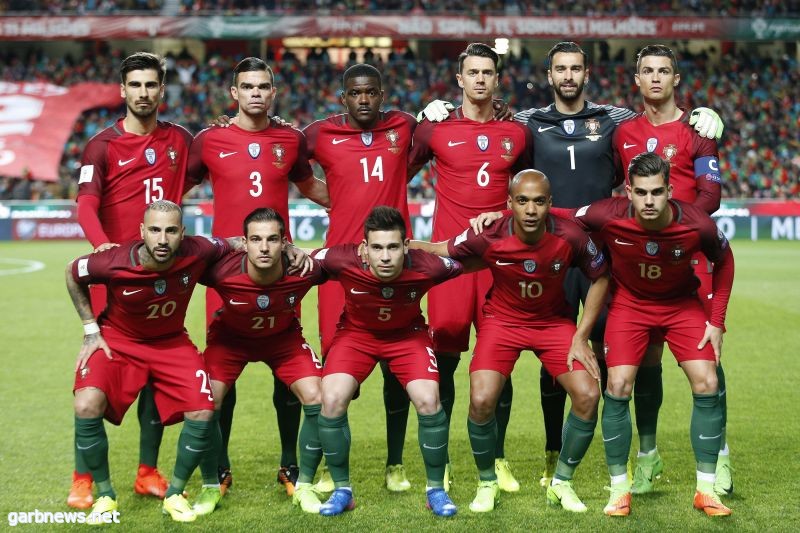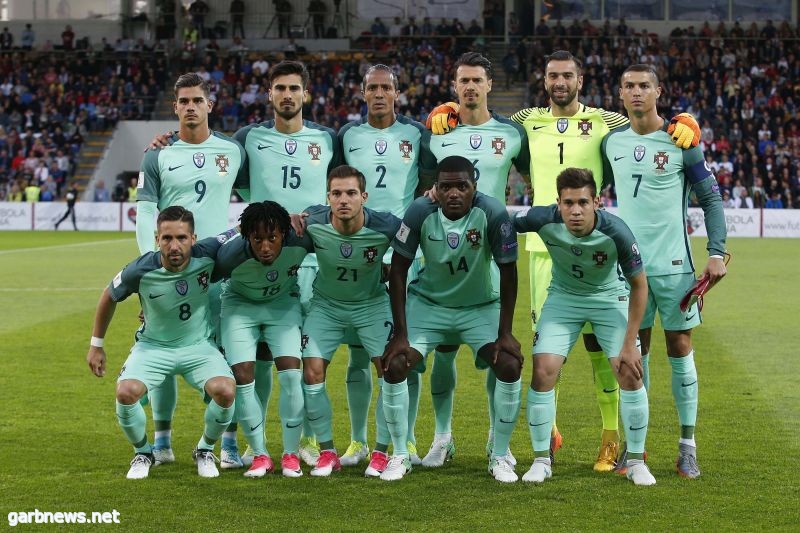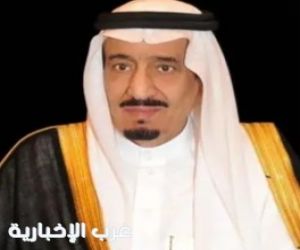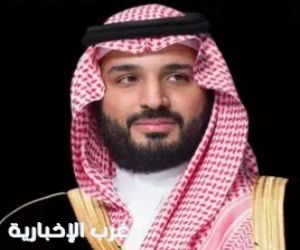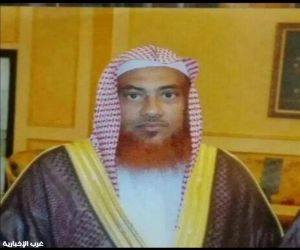المصدر -
Deeply passionate about football, he was a youth player for SL Benfica but became a senior first-team player for GD Estoril Praia. He also played for CS Marítimo, before later returning to Estoril.
Fernando Santos’s father only allowed his son to pursue his passion for football on one condition: he had to continue his studies. Therefore, without ever neglecting his football career, he studied Electronic Engineering and Telecommunications, and graduated in 1977 from Lisbon Polytechnic School of Engineering (ISEL). That explains his “Engineer” epithet in the Portuguese football fraternity.
While still playing football he started working in the engineering field, but in 1987 he couldn’t resist the call from Estoril Praia to coach the team full time. Having done a good job over seven seasons, twice earning promotion, he aroused the interest of Estrela da Amadora, who were a solid top-tier team at the time.
Between 1994 and 1998 he trained at Reboleira, leading the club to its highest ever finish, seventh. In 1998 he was hired by FC Porto and lifted the championship in his first season, which was the fifth consecutive title won the Dragons, thus leading to his nickname as the “Engineer of the Penta”. He also won two Portuguese Cups and two Cândido de Oliveira Super Cups.
In 2001 he left Porto and signed for AEK Athens, winning the Greek Cup and coming second in the league, level on points with champions Olympiakos. The following season he moved to Panathinaikos and in 2003/2004 returned to Portugal to coach Sporting, staying at Alvalade one season.
He returned to Greece and to AEK, who he steered back into the Champions League after two seasons.
In 2006/2007 he became the first Portuguese coach to have managed all three of Portugal’s major clubs when he took over at Benfica. Before him, only Chilean Fernando Riera and Brazilian Otto Glória had done so, and later on Jesualdo Ferreira would match the feat.
He only lasted one season at the Luz before returning to Greece, this time for a three-year stint at PAOK Salonica. His work over these three seasons, namely a second-place finish in 2010 and subsequent qualification for the third qualifying round of the Champions League paved the way for Fernando Santos to become Greece manager, succeeding European Champion Otto Rehhagel.
Fernando Santos qualified Greece for Euro 2012 and the 2014 World Cup, reaching the knockout stages in both tournaments. Before the Brazil World Cup he announced he would leave Greece, as he felt he had taken the Hellenic nation as far as he could. Fernando Santos’s work in Greece earned him the manager of the year award in the 2001/2002, 2004/2005, 2008/2009 and 2009/2010 seasons and manager of the decade between 2000 and 2010.
Fernando Santos was formally presented as the new Portugal manager on 24 September 2014 and achieved his greatest win last year, in France, becoming European Champion with Portuguese National Team.
Deeply passionate about football, he was a youth player for SL Benfica but became a senior first-team player for GD Estoril Praia. He also played for CS Marítimo, before later returning to Estoril.
Fernando Santos’s father only allowed his son to pursue his passion for football on one condition: he had to continue his studies. Therefore, without ever neglecting his football career, he studied Electronic Engineering and Telecommunications, and graduated in 1977 from Lisbon Polytechnic School of Engineering (ISEL). That explains his “Engineer” epithet in the Portuguese football fraternity.
While still playing football he started working in the engineering field, but in 1987 he couldn’t resist the call from Estoril Praia to coach the team full time. Having done a good job over seven seasons, twice earning promotion, he aroused the interest of Estrela da Amadora, who were a solid top-tier team at the time.
Between 1994 and 1998 he trained at Reboleira, leading the club to its highest ever finish, seventh. In 1998 he was hired by FC Porto and lifted the championship in his first season, which was the fifth consecutive title won the Dragons, thus leading to his nickname as the “Engineer of the Penta”. He also won two Portuguese Cups and two Cândido de Oliveira Super Cups.
In 2001 he left Porto and signed for AEK Athens, winning the Greek Cup and coming second in the league, level on points with champions Olympiakos. The following season he moved to Panathinaikos and in 2003/2004 returned to Portugal to coach Sporting, staying at Alvalade one season.
He returned to Greece and to AEK, who he steered back into the Champions League after two seasons.
In 2006/2007 he became the first Portuguese coach to have managed all three of Portugal’s major clubs when he took over at Benfica. Before him, only Chilean Fernando Riera and Brazilian Otto Glória had done so, and later on Jesualdo Ferreira would match the feat.
He only lasted one season at the Luz before returning to Greece, this time for a three-year stint at PAOK Salonica. His work over these three seasons, namely a second-place finish in 2010 and subsequent qualification for the third qualifying round of the Champions League paved the way for Fernando Santos to become Greece manager, succeeding European Champion Otto Rehhagel.
Fernando Santos qualified Greece for Euro 2012 and the 2014 World Cup, reaching the knockout stages in both tournaments. Before the Brazil World Cup he announced he would leave Greece, as he felt he had taken the Hellenic nation as far as he could. Fernando Santos’s work in Greece earned him the manager of the year award in the 2001/2002, 2004/2005, 2008/2009 and 2009/2010 seasons and manager of the decade between 2000 and 2010.
Fernando Santos was formally presented as the new Portugal manager on 24 September 2014 and achieved his greatest win last year, in France, becoming European Champion with Portuguese National Team.







